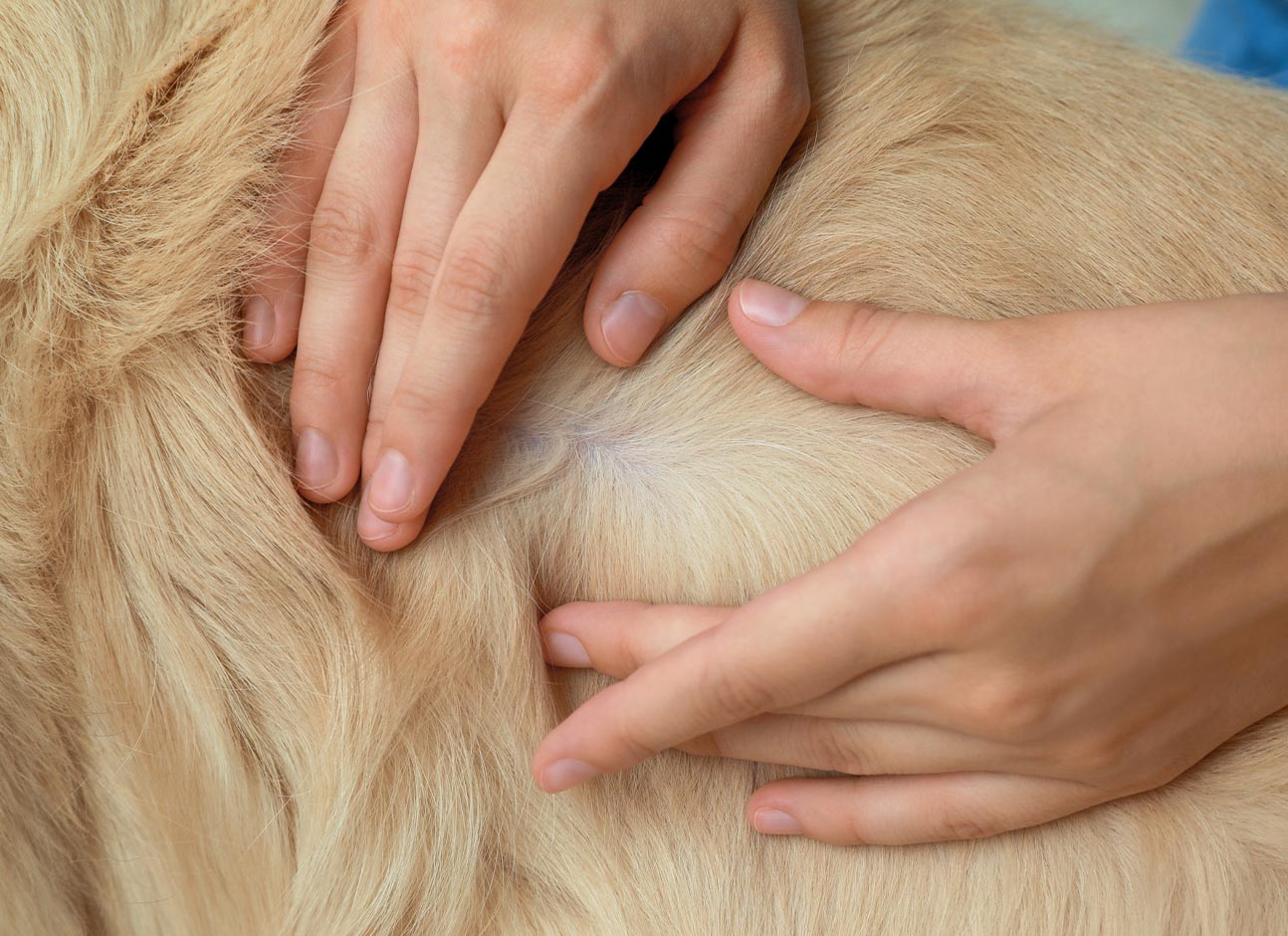Fleas in Dogs
Fleas are blood-sucking parasitic insects that live in the coats of animals, reproduce actively, and can jump from one host to another. Even if you don’t take your pet for walks, there is still a risk of flea infestation. If you discover fleas on your pet, don’t panic. Instead, contact a veterinary clinic to select an appropriate course of treatment to eliminate the parasites.
Symptoms
Common symptoms include constant restless behavior, scratching, and the presence of bite marks on the skin. In such cases, don’t delay visiting the veterinarian; the sooner treatment begins, the easier it will be.
Flea Infection Methods
Dogs often pick up fleas during walks or trips on public transportation, or through contact with a stray animal. However, pets can also become infested with fleas from humans through clothing or footwear.
Dangers of Fleas
Fleas can cause irritation, anxiety, stress, sleep problems, and loss of appetite in pets. Flea dermatitis may develop due to constant scratching. In addition, fleas can carry serious diseases such as brucellosis, distemper, and dipylidiosis.
Dangers to Humans
While fleas cannot live or reproduce on human skin, they can still leave bites, causing allergic reactions at the bite site. Secondary infections are possible if the area is scratched, and fleas can act as carriers for severe diseases.
How to Rid Your Dog of Fleas
To eliminate fleas, you can use various home remedies like wormwood tinctures and thorough cleaning of living spaces and pet care items with baking soda. Alternatively, there are commercial products available at veterinary pharmacies or pet stores, including:
Fipronil and diazinon
Pyrethrins
Pyrethroids
Selamectin
Clothianidin and imidacloprid
Dosages should be individually calculated, taking various factors into account. Some products may have contraindications for puppies or pregnant dogs. Carefully read the instructions and consult with your veterinarian.
Treatments come in various forms: specialized flea shampoos, drops applied to the withers, flea collars, and modern oral medications. Consult with your veterinarian for the most effective treatment option.
Treatment During Pregnancy
Before a planned pregnancy, dogs are usually treated for fleas. However, if fleas are discovered during pregnancy, use milder treatments based on herbal or natural ingredients, such as specialized shampoos. Consult your veterinarian for advice on suitable treatments for pregnant dogs and puppies.
Preventing Flea Re-infestation
To prevent re-infestation after treatment, it’s essential to disinfect your living space, paying special attention to carpets, upholstered furniture, and your pet’s belongings.
